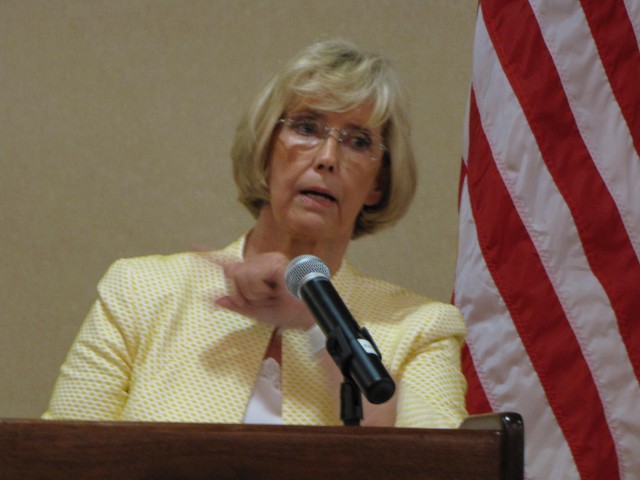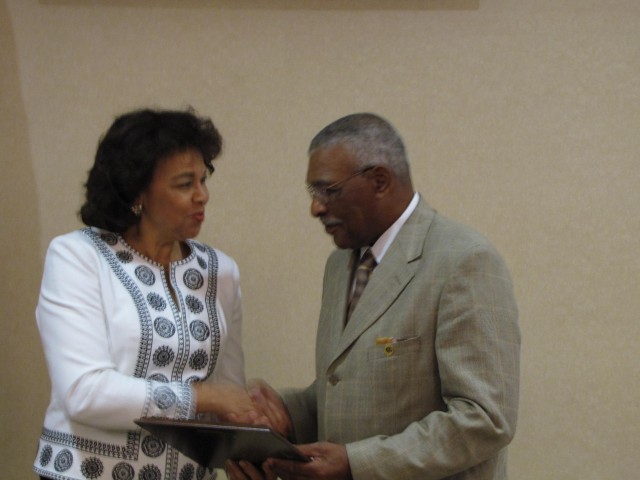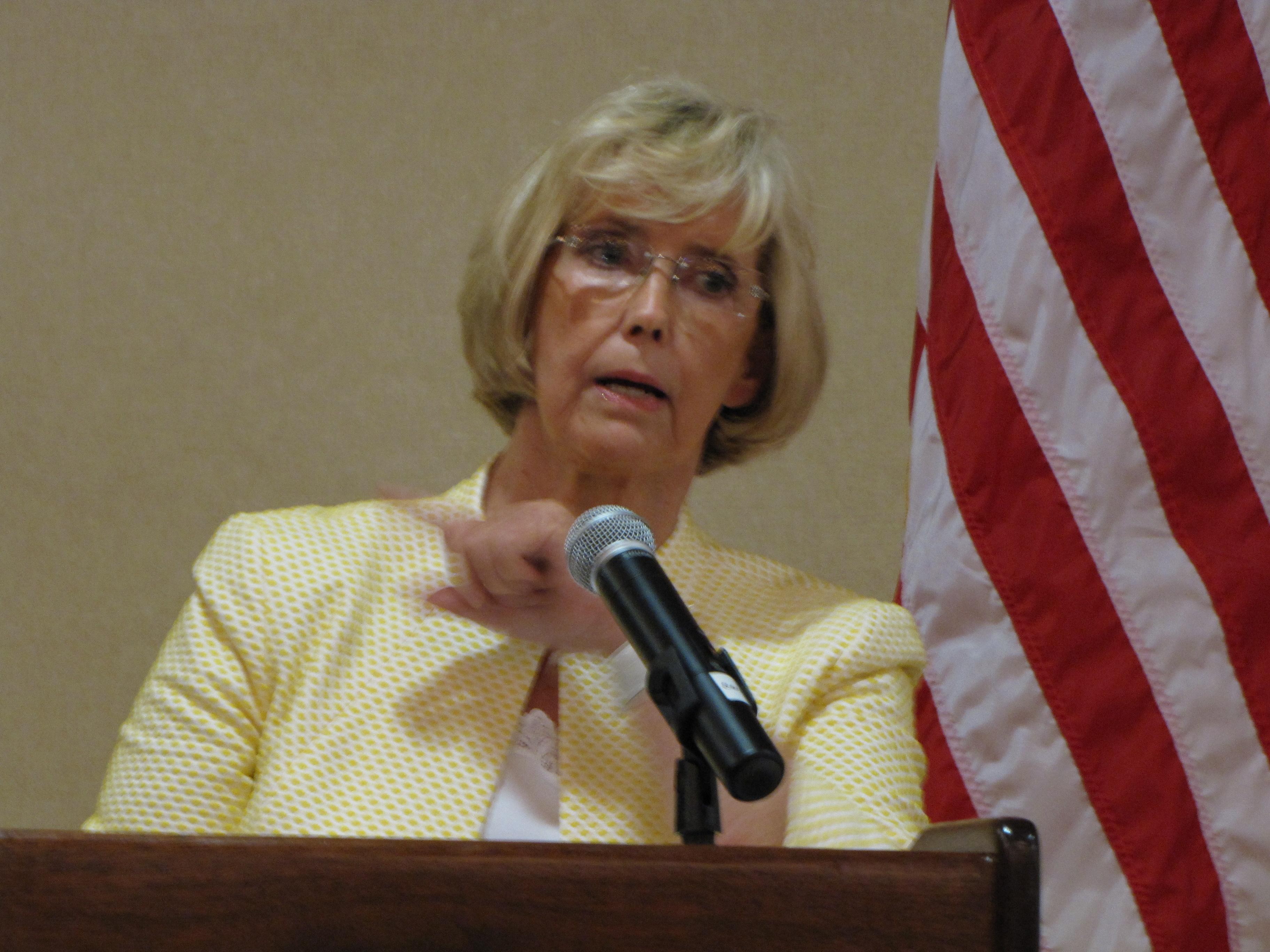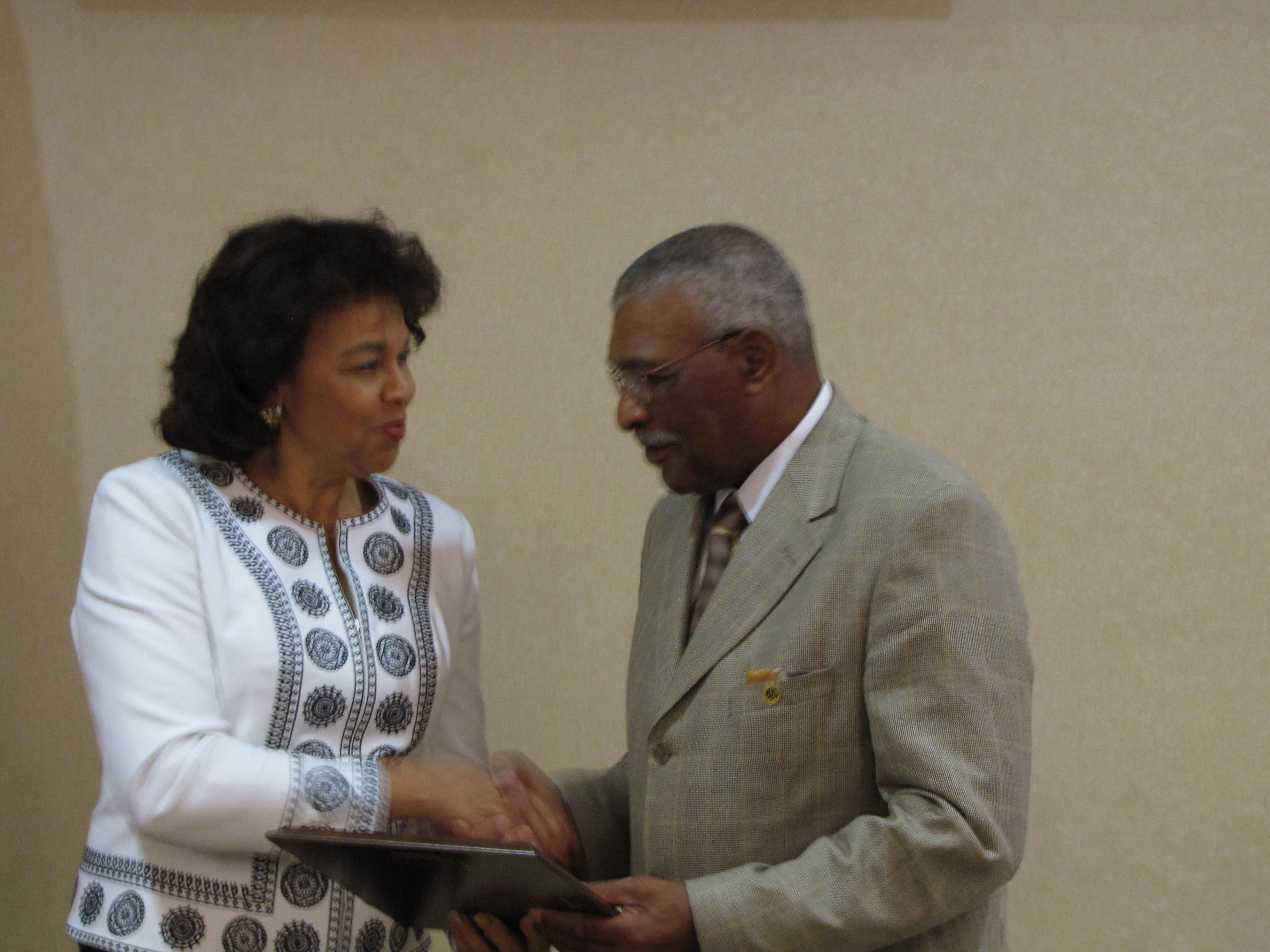Lilly Ledbetter just wanted to retire quietly from Goodyear of Gadsden. But when she got an anonymous note comparing her pay to that of her male co-workers, she was outraged.
The Alabama grandmother waged an 11-year court battle against Goodyear which ended up in the U.S. Supreme Court. President Obama signed the Lilly Ledbetter Fair Pay Act shortly after he took office.
"I wasn't seeking fame, or looking to become a household name. I just wanted fairness," Ledbetter said at Thursday's luncheon of the Huntsville-Madison County Chapter of Blacks In Government.
She just wanted equal pay for equal work, the same compensation received by her male co-workers. And she wanted all women in the work force to receive the same fairness.
"I held up my end of the bargain. My employer, on the other hand, did not," she said.
Ledbetter's journey began in 1979 when Goodyear hired her as a supervisor at its tire plant in Gadsden. She worked there 19 years and was recognized in 1996 with a top performance award. But an anonymous note in her mailbox at work in early 1998 changed her life forever. It showed that she made less than three men doing the same job. She filed suit in 1998, hired a lawyer in 1999 and won a jury judgment awarding her back pay and more than $3.2 million in punitive damages.
"To me it was never about the money," Ledbetter said. "It's about what's right."
Goodyear appealed and the case ended up in the Supreme Court. In May 2007, the Supreme Court handed down a 5-4 decision, Ledbetter vs. Goodyear, which reversed the lower court's ruling. The highest court in the land ruled that since Ledbetter had not filed her charge of pay discrimination within 180 days of her employer's initial decision to pay her less, she could not receive any relief.
But Ledbetter didn't even know her pay situation until she received the anonymous note. By its ruling, the Supreme Court essentially stripped Title VII of the Civil Rights Act of much of its potency.
"They basically changed the law," Ledbetter said. "They changed it when they did that interpretation."
She didn't give up the fight. "I refused to take this unjust ruling lying down," she said.
On July 31, 2007, the House passed resolution 2831, the Lilly Ledbetter Fair Pay Act. And the newly elected president signed it shortly after he took office. This bill simply restores the longstanding interpretation of Title VII of the Civil Rights Act.
"Laws I know are made to be interpreted. They are not made to be changed - not by the Supreme Court," Ledbetter said. "That's not their job."
Speaking to about 40 luncheon attendees at the Officers and Civilians Club, she said "the fight's not over." She encouraged support for the paycheck fairness act, which she called the logical next step to combat pay discrimination. The bill is in the Senate and she said she doesn't know when it will come up for a vote.
BIG chapter president Mary Peoples praised Ledbetter for her inspirational speech. "That was awe-inspiring," Peoples said. "It takes courage to go 11 years."
Ledbetter, 71, a Calhoun County native, resides in Jacksonville, Ala. Her husband of 53 years, Charles, a retired National Guardsman, died last December at age 73 after a massive heart attack. She has a son residing in Anniston, a daughter in Birmingham and four grandchildren.
The Blacks In Government chapter presented its Distinguished Service Award to vice president James Foster. The chapter's Thurgood Marshall Award went to State Rep. Laura Hall.




Social Sharing